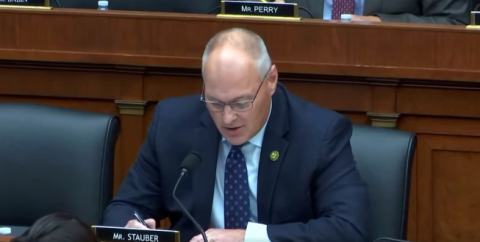Stauber Grills Secretary Buttigieg Over Administration’s Unrealistic and Hypocritical EV Push
WASHINGTON, D.C. – Today, during a Transportation and Infrastructure Committee Hearing on “the Oversight of the Department of Transportation’s Policies and Programs,” Congressman Pete Stauber (MN-08) had the chance to question Transportation Secretary Pete Buttigieg on this Administration’s unrealistic push for a transition to Electric Vehicles (EVs).
Stauber’s question topics covered the technology’s unreliability in cold weather, the monetary impact on Minnesota’s families, and the Administration’s refusal to source the minerals necessary for EVs domestically.

Watch his full line of questioning here.
Following the hearing, Stauber stated, “President Biden and his Transportation Secretary have been failing the American people, and their unrealistic push for a transition to EVs is one major example of that. They cannot continue their efforts to hinder mobility, limit consumer choice, and make vehicles more expensive for American families. Hardworking Americans like those living in Minnesota’s Eighth District have already experienced years of runaway inflation and high energy costs, and this Administration’s efforts will only further increase their financial burden.
Stauber continued, stating, “Additionally, it is hypocritical for this Administration to push EVs while blocking the domestic production of the critical minerals necessary for this technology. Instead, they choose to rely on Chinese-run mines in countries like the Democratic Republic of the Congo, where child slave laborers dig these minerals out of the ground with their bare hands. If this Administration were actually serious about creating a cleaner energy future, then they wouldn’t constantly be blocking Minnesota’s miners from developing these resources under the best labor and environmental standards in the world.”
Background:
President Biden is pushing the U.S. auto industry to accelerate a transition to EVs. In April, the Environmental Protection Agency proposed rules that could result in as much as two-thirds of the new vehicle market shifting to EVs by 2032.
|